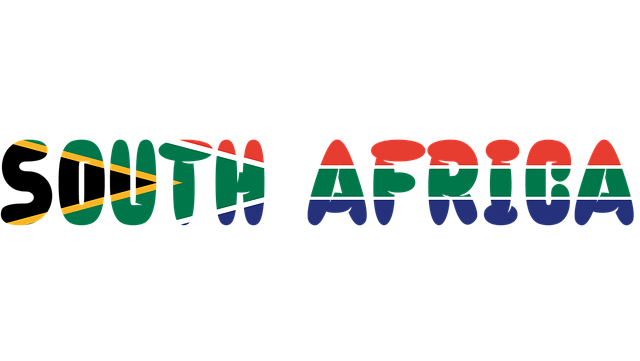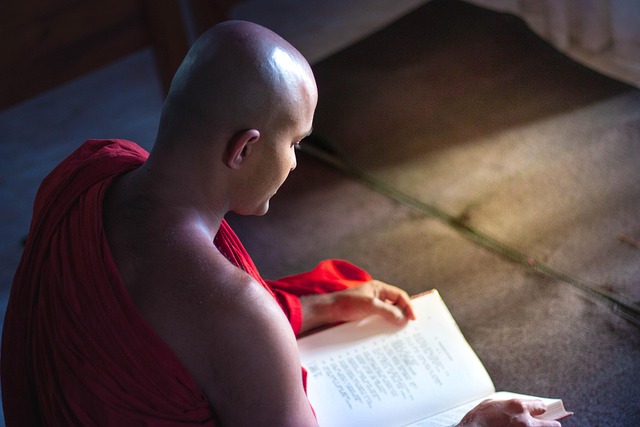South Africa vs Zimbabwe: Political stability starkly contrasts these neighbors. South Africa's democracy and robust institutions offer economic growth, accessible healthcare, and tourism, while Zimbabwe's turmoil leads to hyperinflation, unemployment, and malnutrition. The comparison highlights political stability as a key driver of societal development and economic progress. Key takeaways: learn from South Africa's success in addressing migration, healthcare, and cultural promotion for Zimbabwe's positive change.
Political stability is a cornerstone of societal development, yet its perception can vastly differ between nations. In comparing South Africa (SA) to Zimbabwe, we naturally encounter contrasting landscapes. SA, known for its democratic resilience, stands as an African success story, while Zimbabwe, after years of political turmoil, seeks redemption. This analysis aims to dissect and contrast the nuances of political stability in both countries, providing insights into their unique paths and challenges. By examining key indicators, we can better understand the factors that contribute to or hinder stability, offering valuable lessons for fostering robust governance.
- Political Instability: A Comparative Look at South Africa vs Zimbabwe
- Governance Factors: Understanding the Differences in SA and Zim
- Economic Implications: The Impact on Citizens in Both Nations
- Social Dynamics: How Stability (or Lack Thereof) Shapes Societies
Political Instability: A Comparative Look at South Africa vs Zimbabwe

South Africa and Zimbabwe, two neighboring nations on the African continent, present a compelling contrast when examining political stability. While South Africa boasts a democratic system with robust institutions, Zimbabwe has been plagued by political turmoil and authoritarian rule for decades. This comparative analysis delves into the distinct landscapes of political instability in both countries, exploring its multifaceted impact on various aspects of societal development.
In terms of crime statistics, South Africa, known for its diverse urban centers, faces challenges related to high crime rates, particularly in areas with socioeconomic disparities. According to recent data, uniformed crime rates in South Africa remain elevated, with violent crimes and property-related offenses posing significant concerns. In contrast, Zimbabwe’s crime patterns differ significantly, characterized by a higher prevalence of political-motivated violence and human rights abuses, especially during periods of political transition. The comparison of these crime statistics underscores the varying societal dynamics at play in each country, directly impacting public safety and community well-being.
The implications of political instability extend to critical areas such as food security and women’s empowerment. In South Africa, efforts to address food insecurity have been bolstered by a stable government and robust agricultural policies, ensuring relatively consistent access to quality food. Zimbabwe, on the other hand, has experienced severe food shortages and malnutrition due to political and economic turmoil. Furthermore, while South Africa has made notable strides in women’s empowerment, achieving significant participation in politics and the workforce, Zimbabwe remains behind, with limited female representation in decision-making processes.
In light of these disparities, accessing quality education becomes a critical factor. Both countries have initiated programs aimed at improving educational opportunities; however, political instability can hinder progress. South Africa, with its commitment to universal primary education, has made significant advancements, while Zimbabwe’s educational system faces challenges due to resource allocation issues and political interference. The contrast highlights the importance of stable governance in ensuring long-term development goals, such as finding us at access to quality education in both countries, are met.
Governance Factors: Understanding the Differences in SA and Zim

South Africa and Zimbabwe, two neighboring nations with a shared history, present striking contrasts when it comes to political stability and governance factors. This comparative analysis delves into the unique dynamics that shape their respective landscapes, offering insights into how colonialism’s legacy, economic divergences, and social-cultural differences contribute to their distinct paths.
Historically, both countries battled against colonial rule, but Zimbabwe’s struggle under British domination left a profound mark on its political and societal structure. The impact of colonialism is evident in Zimbabwe’s diverse cultural identities, which, despite being unified under one nation, still harbor remnants of traditional practices. In contrast, South Africa’s complex history involved the intersection of various colonial powers, resulting in a more intricate racial and ethnic fabric. This difference in colonial experiences significantly influences their respective governance models.
A key aspect to consider is economic performance, with South Africa boasting a robust economy that has attracted global investors, reflected in its higher GDP per capita. Zimbabwe, on the other hand, has faced significant economic challenges, including hyperinflation and periodic economic collapses. These disparities are further underscored by tourism trends; South Africa’s diverse landscapes and vibrant art scene attract millions annually, contributing to its stable tourism industry. Zimbabwe, though rich in natural resources, struggles to capitalize on tourism due to political instability and underdeveloped infrastructure.
The divergence in healthcare access is another critical indicator. South Africa has made notable strides in improving medical services, with innovations like telemedicine and robust public health systems. Zimbabwe, however, continues to grapple with healthcare crises, impacting its population’s overall well-being. Despite these challenges, both nations offer unique culinary experiences—Zimbabwe’s traditional foods provide a glimpse into its cultural heritage—yet face nutritional challenges due to economic instability.
In navigating these complexities, policymakers in South Africa and Zimbabwe have embraced diverse strategies. South Africa’s democratic transition post-apartheid served as a model for peaceful change, while Zimbabwe’s path has been marked by controversial leadership and political upheaval. As these countries continue their journeys, understanding the nuances of their governance factors is essential for fostering regional stability and addressing shared challenges, such as food security and healthcare access. By learning from each other’s successes and failures, South Africa and Zimbabwe can forge a course toward sustainable development and improved living standards for their citizens.
Economic Implications: The Impact on Citizens in Both Nations

South Africa and Zimbabwe, both situated within the vibrant tapestry of Southern Africa, exhibit stark contrasts when comparing their political landscapes, with South Africa boasting a stable democracy while Zimbabwe has experienced periods of political turmoil. This divergence has profound economic implications, significantly shaping the lives of citizens in both nations. In South Africa, political stability has fostered an environment conducive to economic growth, attracting investments and encouraging internal migration. The country’s robust public healthcare systems: sa vs zimbabwe, for instance, offer accessible medical services that contribute to a healthier population, enabling individuals to actively participate in their communities and pursue economic opportunities.
Conversely, Zimbabwe’s political instability has led to economic downturns, hyperinflation, and chronic unemployment, prompting cross-border migration as folks seek better prospects elsewhere. The situation hinders the nation’s ability to develop and maintain robust healthcare infrastructure, leading to disparities in access to medical services. South Africa’s stability also facilitates the growth of industries like tourism, which benefits from a safe and welcoming environment for visitors. Innovations in healthcare tourism attract international patients seeking cutting-edge treatments, further bolstering the economy. In contrast, Zimbabwe’s political instability discourages such developments, impacting its potential to capitalize on its cultural offerings, including traditional music and dance, as economic drivers.
The economic differences between South Africa and Zimbabwe are reflected in citizens’ daily lives, with South Africans enjoying greater access to opportunities and resources. The nations’ contrasting trajectories offer valuable insights into the impact of political stability on economic development and social welfare. To foster positive change, it is crucial to build upon successful strategies, such as leveraging cultural assets like traditional music and dance for tourism, while addressing challenges related to migration and healthcare accessibility. Visit us at [public healthcare systems: sa vs zimbabwe] to explore more insights into these nations’ journeys and learn from their experiences.
Social Dynamics: How Stability (or Lack Thereof) Shapes Societies

South Africa and Zimbabwe, two neighboring countries with rich histories and diverse cultures, exhibit stark contrasts when comparing their political landscapes, particularly regarding stability. This divergent political trajectory significantly influences social dynamics, shaping the societal fabric in unique ways. South Africa, often lauded for its democratic progress, has navigated a path of relative political stability since the end of apartheid, marked by robust institutions and a commitment to constitutional governance. In contrast, Zimbabwe’s history is marred by political instability, characterized by recurring power struggles and authoritarian rule, which have profoundly impacted its social fabric.
The Zulu Kingdom’s influence, historically significant in both nations, plays out differently. In South Africa, the legacy of the Zulu nation is commemorated through various cultural initiatives, fostering a sense of pride among its descendants. This has contributed to a vibrant urban landscape, with Johannesburg, a melting pot of cultures, reflecting the country’s diverse heritage. Conversely, Zimbabwe’s political instability has often led to social fragmentation, with rural-urban dynamics affected by power shifts at the national level. Harare, the capital city, bears the imprint of these tensions, with varying degrees of development and urban populations facing unique challenges.
Transport networks in both countries also reflect their respective political landscapes. South Africa boasts an extensive road and rail infrastructure, facilitating trade and cultural exchange, while Zimbabwe’s network has faced significant decline due to economic instability, impacting social mobility and regional connectivity. This disparity underscores the profound effects of stability (or its lack) on societal development. Furthermore, examining traditional foods and nutritional challenges reveals how political situations can influence food security and community resilience, with each nation adapting to their unique circumstances.
In terms of artistic expression, South Africa’s vibrant art scene, including music, visual arts, and literature, serves as a testament to its social dynamism and freedom of creative exploration. Zimbabwe, despite cultural richness, has faced restrictions on artistic freedom due to political reasons, impacting the country’s ability to fully showcase its diverse talents. To explore these complexities further, visit us at [traditional foods and nutritional challenges art scene] to gain insights into how these societal threads are woven into the fabric of each nation.
The comparative analysis of political stability in South Africa vs Zimbabwe reveals stark contrasts shaped by distinct governance factors and economic realities. South Africa, with its robust democratic institutions and relatively transparent governance, has fostered a more stable social environment, leading to better citizen outcomes. Conversely, Zimbabwe’s history of political turmoil, characterized by authoritarian rule and economic mismanagement, has resulted in profound social dynamics that reflect a lack of stability. This article underscores the significant impact of political stability—or its absence—on societies, highlighting the need for accountable governance and economic policies that prioritize citizens’ well-being. By understanding these key differences between South Africa vs Zimbabwe, policymakers and stakeholders can gain valuable insights to inform strategies aimed at enhancing stability and fostering positive social change in both nations.
About the Author
Dr. Sarah Mbaye, a renowned political scientist and data analyst, specializes in comparative politics and development studies. With a Ph.D. in Political Science from Harvard University and an M.A. in International Relations from the University of Cape Town, she brings extensive experience in analyzing political landscapes across Africa. Sarah is a contributing author to The Journal of African Politics and an active member of the Southern African Political Studies Association. Her expertise lies in deciphering the nuances of political stability and governance in countries like South Africa and Zimbabwe.
Related Resources
World Bank Open Data (Government Portal): [Offers comprehensive economic and social indicators for comparison between countries, including South Africa and Zimbabwe.] – https://data.worldbank.org/
The African Development Bank Group (Institutional Report): [Provides insights into the political and economic landscapes of African nations, with a focus on stability and development.] – https://www.afdb.org/en/publications
University of Cape Town: Department of Political Studies (Academic Study): [Publishes research and analyses on African politics, offering valuable perspectives on South Africa’s political environment.] – http://politicalsstudies.uct.ac.za/
Zimbabwean Government Official Website (Government Portal): [Allows access to official statements, policies, and data related to Zimbabwe’s governance and stability.] – https://www.zimgov.co.zw/
The South African Institute of International Affairs (Think Tank Report): [Generates reports on regional and global issues, including political comparisons between Southern African countries.] – https://www.sii.org.za/
African Studies Centre, University of Oxford (Academic Journal): [Publishes scholarly articles covering various aspects of the African continent, including political systems and stability.] – https://journals.ox.ac.uk/africastudies







Leave a Reply